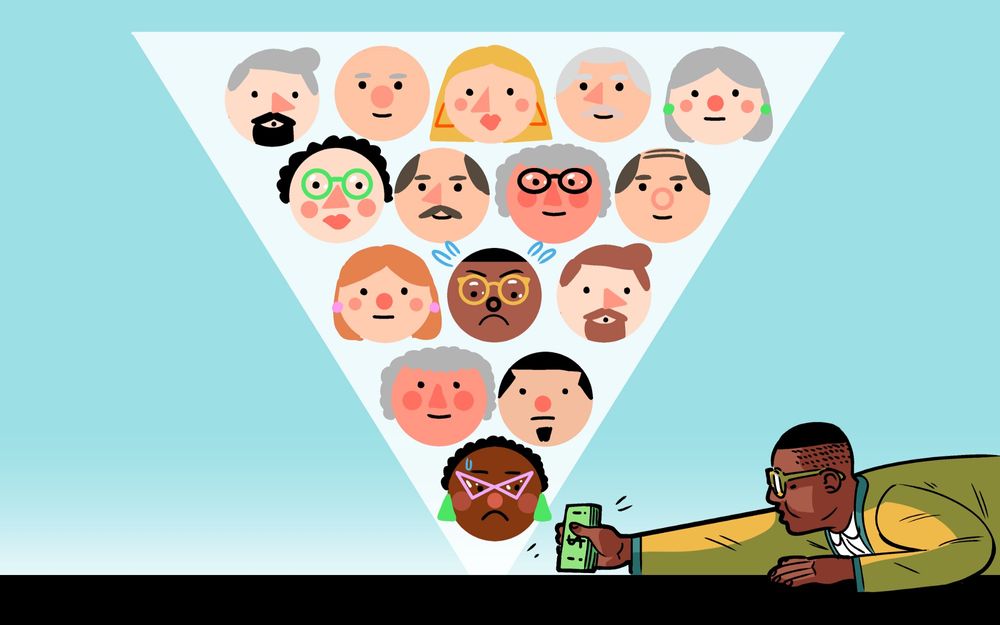The summer before my senior year in college, I landed an internship in New York City at a company where I’d always wanted to work. I still remember that experience like it was yesterday: subway rides to the office, chopping it up with people whose LinkedIn accounts I’d stalked as a junior, soaking up all the game I could. I was living the dream — aside from the fact that my only compensation was fist bumps and the occasional extra scone from a Starbucks run.
These memories came to mind recently last week after a perennial Twitter topic trended once again: unpaid internships. As always, it spiraled into a heated debate with no middle ground. Some declared unequivocally that all companies should pay interns; others advocated for the nobility of unpaid internships, since the tradition had been pivotal in their own professional journeys. While I’d never glorify students paying dues at their own expense, I couldn’t completely cosign either side of the argument.
Hear me out.
Do interns deserve to get paid? You bet your ass they do. During my intern days, I could only make ends meet by moonlighting as a waiter on nights and weekends, often changing into my flair-laden uniform before leaving the office. It’s hard enough getting noticed among a small group of hungry novices; try bringing your A game every day while basically working two jobs and finding your way in a new city. The irony of the unpaid internship is that it’s actually a paid internship, just with interns footing the bill.
While these unpaid opportunities can be effective ways of getting a foot in the door, they also tend to disenfranchise those who aren’t able to afford a few months of subletting, transportation, food, and other expenses. It’s no wonder so many white-collar industries are about as diverse as a carton of eggs — and not the brown ones.
It pleases me to no end to hear folks call out these companies exploiting essential workers for free labor. (Yes, essential. At every office job I’ve worked, I’ve heard some variation of “I can’t wait until the interns start” in regard to some tedious-but-necessary task that no one wants to do.) While these unpaid opportunities can be effective ways of getting a foot in the door, they also tend to disenfranchise those who live in distant cities and aren’t able to afford a few months of subletting, transportation, food, and other expenses. It’s no wonder so many white-collar industries are about as diverse as a carton of eggs — and not the brown ones.
I respect those who successfully navigate a tough financial situation and find a way to make an unpaid internship work, especially since it took that same energy for me to get on. But I don’t have illusions about my unpaid internship being a form of character-building or a life lesson about grit. While I was willing to work for free, it doesn’t mean I should have had to. But Black folks know all too well how to deal with sour situations. And it just so happens I make some damn good lemonade.
This is where some of the pro-payment folks click-clacking on Twitter lost me. Quite a few users fixed their fingers not only to shun companies that don’t pay, but also to shame people who would “settle” for those opportunities. Their blanket argument began to sound backhanded. I remember an employee at my own aforementioned internship insisting that during his collegiate days, he only accepted paid opportunities. I don’t think he was trying to make me feel like a fool, but in that moment, he kinda did.
We all know social media is where nuance goes to die. But as professional adults, we should be more thoughtful. We can encourage young folks to go after paid opportunities while simultaneously being kind to those who do the opposite. There’s no shame in betting on yourself, the networking potential, and the work experience that comes with an unpaid internship. Besides, while monetarily something is always better than nothing, most companies that compensate interns are pretty much paying them nothing anyway.
I’ve had great unpaid internships and mediocre paid internships, yet the stipend (or lack thereof) wasn’t the deciding factor on my success; it was my drive. So let’s normalize allowing young adults to make the best decisions for their futures — all while dragging companies that offer no compensation for interns. Fist bump to that.
Read more: The Survivor’s Guilt When Black Co-Workers Leave the Job
